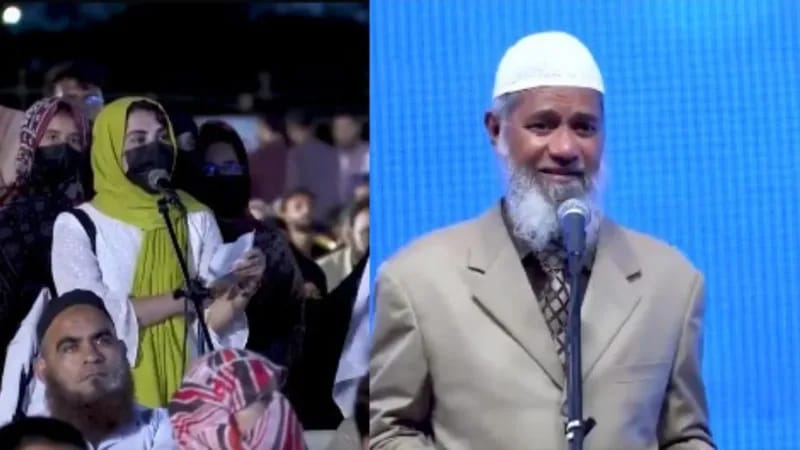By: Augustine Gill
Dr. Zakir Naik’s recent state visit to Pakistan has sparked significant controversy, both at home and abroad. Naik, a religious scholar, due to his inflammatory speeches and has been banned in multiple countries, including India and Malaysia, and holds the accusations of promoting hate speech and extremism. His arrival in Pakistan has shed light on deeper issues surrounding his behavior and intentions, raising serious questions about the wisdom of hosting such a divisive figure.
Several commentators, including Tahir Gora, Syed Muzammil, and Mubasher Lucman, have provided insightful critiques of Naik’s conduct during his trip, pointing out his sense of entitlement, hypocrisy, and misuse of religious authority. These voices have offered a comprehensive assessment of Naik’s time in Pakistan, revealing the troubling aspects of his character and the dangers of giving him a platform.
Tahir Gora: Hypocrisy and Entitlement:
Tahir Gora’s critique focuses on Naik’s manipulative and hypocritical tendencies, as demonstrated by his outrageous demand for 1,000 kg of free luggage from Pakistan International Airlines (PIA) as a state guest.
This entitlement, Gora argues, is not rooted in necessity but in a deep sense of privilege. He contrasts this with India’s previous leniency towards Naik, where he was allowed to operate unchecked for years. Gora suggests, Pakistan has taken an important step in holding religious figures accountable for abusing their influence.
Syed Muzammil: Offensive Statements and Financial Misconduct:
Syed Muzammil’s analysis zeroes in on Naik’s offensive rhetoric, particularly towards women. Naik’s statement that unmarried women become “public property” caused widespread outrage for its dehumanizing nature. Muzammil also highlights Naik’s financial misconduct, pointing to accusations of money laundering through his Islamic Research Foundation (IRF) in India, which allegedly funded extremist activities. Muzammil notes that Naik’s visit to Pakistan amid ongoing legal cases was poorly timed and only further tarnished his credibility.
Mubasher Lucman: Hypocrisy in Action
Mubasher Lucman’s critique centers on Naik’s blatant hypocrisy. Lucman describes his disappointment in Naik’s refusal to interact with orphan girls, citing Islamic restrictions, while comfortably posing with female anchors and flight attendants. This inconsistency, Lucman argues, highlights how Naik manipulates religious rules to suit his convenience. Additionally, Lucman questions Naik’s lavish lifestyle, which starkly contrasts with his calls for donations an incongruity that undermines his moral authority.
His visit to Pakistan has been marred by offensive statements, extravagant demands, and unresolved allegations of financial impropriety. Rather than fostering religious harmony, which Pakistan desperately needs, Naik has only deepened divisions. Pakistan, a country already struggling with religious intolerance, have backfired, igniting widespread condemnation.
As a member of the Pakistani Christian diaspora, I find Naik’s brand of religious intolerance particularly alarming. His arrogance demonstrated by his refusal to debate a Christian scholar unless absurd conditions were met—underscores his fear of genuine intellectual engagement. His dismissive and combative demeanor further reveals a man more interested in dictating his views than fostering meaningful dialogue.
The Need for Accountability
Zakir Naik’s presence in Pakistan sends a dangerous message to the country’s religious minorities and marginalized groups. His extremist views and divisive rhetoric undermine the very fabric of religious coexistence and tolerance that Pakistan must cultivate. I join the growing chorus of voices within Pakistan who have courageously challenged Naik’s influence.
It is time for us to prioritize unity and accountability over religious extremism and divide in Pakistan. Sending Naik’s narratives back to him, would be a step in the right direction one that signals our commitment to building a future rooted in respect for all its citizens, regardless of their faith.


